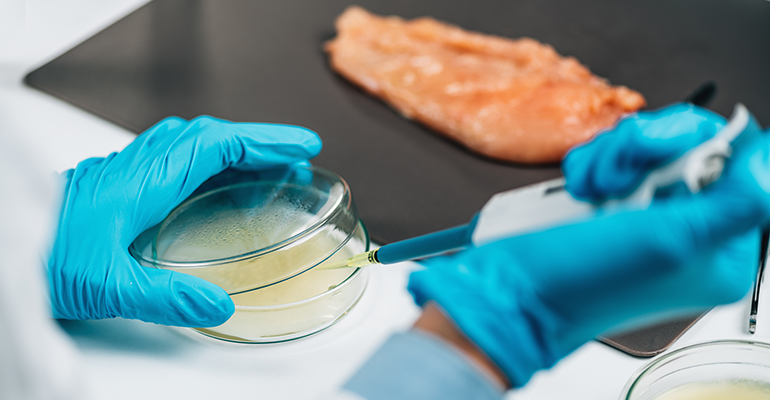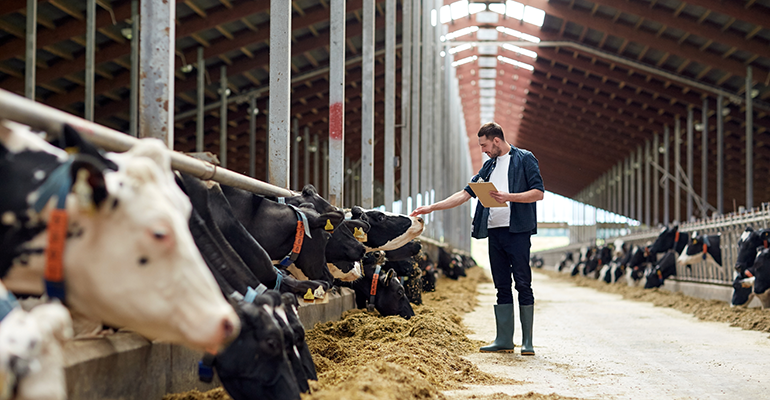News
USDA progresses project to assess ‘raised with antibiotics’ market
26 Jul 2023Consumers and the wider food industry are asking for greater transparency and accountability in placing antibiotics claims on animal-based products.
In recent weeks, several big players and legislative shifts have shaken the manufacturing industry with calls for better antibiotics claims management.
On 14 June, the United States Department of Agriculture (USDA) announced that its Agricultural Research Service (ARS) would partner with the Food Safety and Inspection Service (FSIS) to conduct a new sampling project. Designed to help inform FSIS, the project will assess antibiotic residues in cattle destined for the “raised without antibiotics” market.

The USDA agency intends to improve the verification of antibiotic-free labels on meat and poultry products. “Consumers should be able to trust that the label claims they see on products bearing the USDA mark of inspection are truthful and accurate,” said Tom Vilsack, the agriculture secretary.
Antibiotic sampling and screening
The sampling will screen for antibiotic residues and will occur on cattle whose meat will be marketed with the “no antibiotics important to human medicine” label.
The project’s results will help determine whether FSIS should insist that laboratory testing results are submitted for the “raised without antibiotics” claim or whether to start a new verification sampling programme.
FSIS will also issue a revised industry guideline to recommend that companies strengthen the documentation they submit to the agency to substantiate animal-raising claims.
“The agency plans to strongly encourage third-party certification to verify these claims,” an FSIS spokesperson told Ingredients Network. “Together, these actions will be used to guide potential rule-making on animal-raising claims.”
Making verification improvements
Asked about the drivers behind this decision to improve the verification process on animal-raising claims, the spokesperson said: “FSIS has a statutory mandate to ensure that labels of products under its jurisdiction are not false or misleading.”
In addition, FSIS has received numerous petitions, comments, and letters from a wide range of stakeholders asking the agency to re-evaluate how animal-raising claims and “negative claims” related to antibiotic use, such as “raised without antibiotics” or “no antibiotics ever”, are substantiated.
“FSIS’s actions would help level the playing field for producers using the claims,” the spokesperson said of how its new sampling project will impact the food manufacturing industry.
“USDA looks forward to continued engagement with our stakeholders as we work to ensure the integrity of animal-raising claims, which both consumers and producers value,” the spokesperson added.
Reintroducing antibiotics sparks concerns
On 2 July, Reuters reported that multinational meat marketer and processor Tyson Foods was reintroducing antibiotics into its chicken supply chain and dropping its “no antibiotics ever” tagline.
The specific antibiotics Tyson Foods will be reintroducing are called ionophores, molecules that help to transport ions. In agriculture, these antimicrobials are fed to cattle to increase production efficiency.
The use of ionophores in the meat supply chain has garnered concerns. A 2023 research study stated that despite their decades-long presence in poultry, “new cases of ionophore-induced toxicosis are still being reported yearly”. Furthermore, the “misuse of ionophores can cause toxicity with significant clinical symptoms”.
While manufacturers may state that this only affects animals and cattle, and therefore consumers do not experience any direct impact, growing awareness of animal welfare and ingredient transparency may lead food shoppers to turn away from products with antibiotics.
 © AdobeStock/Syda Productions
© AdobeStock/Syda Productions
Industry-wide initiatives aim to stop spread of antibiotic resistance
In November 2017, the World Health Organization (WHO) announced recommendations for the food industry and farmers to stop using antibiotics in healthy animals to prevent the spread of antibiotic resistance.
A 2022 research study conducted by members of the Antibiotics Resistance Action Center found that a substantial portion of cattle heading for the “raised without antibiotics” market had been given antibiotics, diminishing consumer confidence that they are receiving the produce they believe they are paying for.
Researchers at George Washington University found that 42% of cattle raised in what were thought to be antibiotic-free feed areas tested positive for antibiotic residues.
Tyson Foods will transition to the “no antibiotics important to human medicine” label by 2023. The label is approved by the WHO and is an approved USDA Process Verified Program.
Approximately half of the US multinational’s poultry supply uses antibiotics. The urgency surrounding this drive for transparency comes amid the ongoing highly pathogenic avian influenza (HPAI) outbreak, which has been reported to have killed nearly 60 million farmed chickens and turkeys. With the food industry suggesting that vaccinating these birds is the only way to halt the spread of HPAI and the continuation of the crisis, consumers may be wary of any links between antibiotics and food safety.
Vilsack said: “USDA is taking action today to ensure the integrity of animal-raising claims and level the playing field for producers who are truthfully using these claims, which we know consumers value and rely on to guide their meat and poultry purchasing decisions.”
In July 2022, Avec, an organisation representing Europe’s poultry meat sector, launched its Sustainability Charter, which seeks to create a pathway towards ongoing improvements in several key areas, including antibiotics.